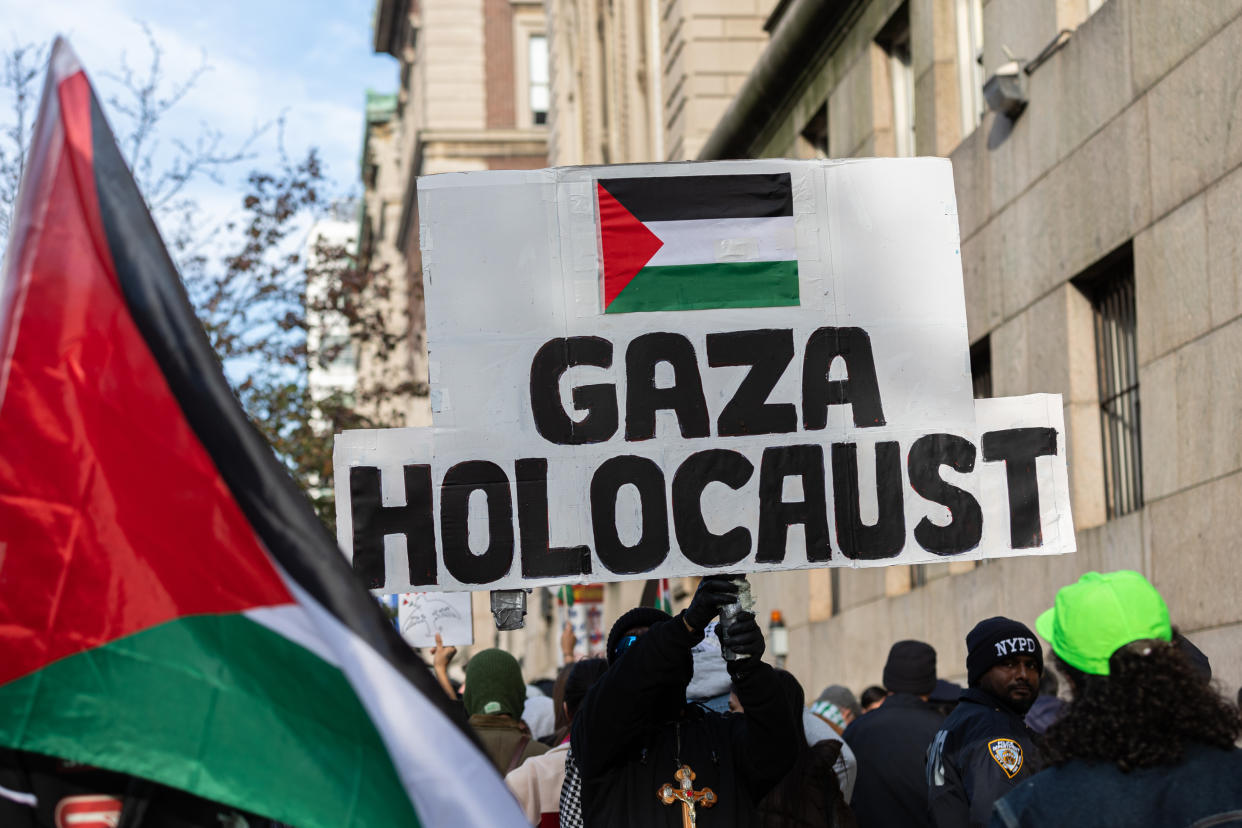Columbia University suspends students over pro-Palestinian event with ‘known’ terrorism supporters

NEW YORK — Columbia University is suspending multiple pro-Palestinian students for an unsanctioned campus event with “known” supporters of terrorism, as the university tries to respond to campus tensions during the Israel-Hamas war, President Minouche Shafik announced Friday.
At least four students currently face disciplinary action in connection with the panel, “Resistance 101,” on March 24, according to student newspaper Columbia Spectator. Another two students who were initially suspended had the discipline reversed, it said.
“An event took place at a campus residential facility that the University had already barred, twice, from occurring,” Shafik said in a statement.
“It featured speakers who are known to support terrorism and promote violence,” she continued. “I want to state for the record that this event is an abhorrent breach of our values.”
According to social media posts, the webinar, which students could view remotely or with a group on campus, featured Khaled Barakat, a Palestinian activist, among other speakers. In the clip, Barakat tells students that his “friends and brothers” in Hamas and Islamic Jihad are looking to “students organizing outside Palestine” as they try to “stop the Israeli aggression and defeat Israel.”
“I did not become a university president to punish students,” Shafik said. “At the same time, actions like this on our campus must have consequences.”
“That I would ever have to declare the following is in itself surprising, but I want to make clear that it is absolutely unacceptable for any member of this community to promote the use of terror or violence,” the statement read.
The individual suspensions come after Columbia kicked two pro-Palestinian student groups off campus last semester for organizing an unauthorized campus protest, sparking concerns over free speech and a recent lawsuit by civil liberties groups.
The group Students for Justice in Palestine said the suspended students had 24 hours clear out of university housing. The event was held in special university housing for queer students, they said.
Investigators emailed the leaders of more than 100 student groups that belong to the coalition Columbia University Apartheid Divest and demanded students share private text messages, according to Students for Justice in Palestine. The group described efforts as “threatening” and an attempt to “intimidate” students.
Students for Justice in Palestine accused the university of a “coordinated campaign to boost Columbia’s public image” before Shafik and two trustees testify as part of a Republican-led antisemitism probe on April 17. Two out of three college presidents subjected to a congressional hearing last year later resigned, from Harvard University and the University of Pennsylvania.
“Columbia administration’s only mission at this moment is to strengthen President Shafik’s Congressional testimony, no matter how many students whose livelihoods and safety they destroy in the process,” read the statement.
Chief Operating Officer Cas Holloway — a former deputy mayor for operations during the Bloomberg administration tapped by Columbia in January — announced last week that the university had notified law enforcement of the event, and engaged an “outside firm led by experienced former law enforcement investigators” to conduct an investigation. A Columbia spokesman declined to name the firm.
Pro-Palestinian students have repeatedly accused the administration of not doing enough to keep them safe from "doxxing" trucks, physical attacks and arrests. Meanwhile, group of Jewish students, who reported feeling unsafe and abuse on campus, brought a federal antisemitism lawsuit this winter.
“Khaled Baraket and his ‘friends at Hamas and Islamic Jihad’ are playing our classmates,” read a statement from the student group Students Supporting Israel, “using their sympathy for what is to them an abstract cause to recruit and garner material support for actual terrorists.”
Columbia is still in the process of interviewing students and faculty, and gathering facts, Shafik said.
_____

 Yahoo News
Yahoo News 
